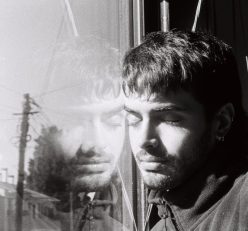Sonic Bodies: Reggae Sound Systems, Performance Techniques, and Ways of Knowing is a book written in 2011 by Dr Julian Henriques, who lectures in the Department of Media and Communications at Goldsmiths University, London, United Kingdom. In the book, he uses the Kingston (Jamaica) reggae sound system scene to explore the concept of sound embodiment, or, as the title suggests, sonic bodies, through an epistemological perspective of sound, based on the categorical concepts provided throughout the years by philosophers.
Julian Henriques suggests that one can think through sound and use the feelings and sensations in dancehall scenes to describe this affirmation
The sheer physical force, volume, weight and mass of it. Sonic dominance is hard, extreme and excessive.
Henriques, Julian. ‘Sonic Dominance and the Reggae Sound System Session’. In The Auditory Culture Reader, edited by Michael Bull and Les Back, 451–80. Sensory Formations Series. Oxford, UK and New York: Berg, 2003.
He compares the presence of sound to an ocean wave, where one feels emerged and in a total emancipated form of it. “The sound pervades, or even invades the body, like smell. Sonic dominance is both a near over-load of sound and a super saturation of sound. You’re lost inside it, submerged under it. This volume of sound crashes down on you like an ocean wave, you feel the pressure of the weight of the air like diving deep underwater” (Henriques, 2003)
Julian considers that there are many forms of expression, and sight is often seen as the major one, as well as written language, and symbols. However, sound possesses the same notation of understanding and lacks the need for pictorial representation or any other form of communication, such as music. These considerations were also purposed under a triad he designed, which analysis sonic bodies in the context of instruments of the sound system.

Henriques also divides sounding epistemologically into 3 categories:
- Mechanical: as auditory propagation and specific sensory modality of audition, distinct from, yet integrated with the other senses.
- Practical: as the basis for the techniques and traditions of a particular popular auditory culture
- Theoreticall: as a dynamic model for both raising questions about the world
Sounding is a concept similar to Musicking (conceptualised by Christopher Small) defined by the author as something that “requires kinetic movement, with the corporeal agents of sonic bodies”, and englobes everything that entails its production and scene, from the crew to the social culture ambient.
